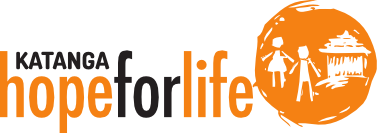Impact of Coronavirus on four families in Katanga
We hear from four families about the impact of Coronavirus on their lives at this time.
Uganda, like the rest of the world has taken drastic measures to curb the spread of Coronavirus. Among these measures is a partial lock-down of the nation that, among others, prohibits movement of vehicles (except those offering essential services), closure of schools, closure of most businesses and a nationwide curfew that begins at 19:00hrs and ends at 06:30hrs.
We asked some of the parents we support and work with, in Katanga, to share with us how they are coping with life under the weight of the new restrictions that have robbed many of them of their livelihood.
MARGARET
Margaret is the auntie and primary parent to two children we sponsor into school in Kampala. She is worried about how she is going to support her children through this lock-down. Her husband is one of the thousands of boda boda drivers (motorbike taxi), who have been directed to stop transporting passengers by the government, in the effort to curb the spread of the virus. Their livelihoods have completely stopped.
As a result, Margaret’s primary concerns are providing food and ensuring that her two children can continue with their education, despite not being in school. Margaret received a food parcel from HFL a few weeks ago, which has sustained them for the past few weeks. She also buys a newspaper on Mondays, Thursdays and Saturdays, as they contain past papers to the national exam, which will help both children during this time, particularly as the eldest is hoping to be promoted to senior school in January 2021.
Despite the lock-down and restrictions, Margaret is pleased by the government's early actions to combating the spread of the virus “because it’s the government’s duty to ensure that we are alive and well”.
ROBERT
Two of Robert and Doreen’s five children are sponsored into school with HFL. Doreen works as a hairdresser and Robert works transporting merchandise from the city into the country using public transport. Like the majority of those we work with in Katanga, their income has dried up. “Before the lock-down, the money I made a day is what we used to feed on. We used to have three meals a day but now it’s just one meal a day because of limited provisions and uncertainty about the future”, Robert explained.
“Food is our greatest need because hunger may kill us instead of Coronavirus. At the start of this lock-down, I bought 25 kg of maize flour but already we have used 15 kg. We are not sure if the landlord will throw us out of the house though, thankfully, the president asked them to be patient with us through this difficult time, so we can pay them later.”
“I welcome the interventions because they are aimed at keeping us alive. But I wish the government followed them up with provisions of food.”
FARIDAH
Faridah, a tailor, and her husband, who sells clothes, have seen their work come to a standstill. Their savings are depleting fast as they try to sustain just the one meal a day. At the beginning of the lock-down, they had stocked maize flour and beans but she is concerned that may only last another week. Before this lock-down, Faridah, who is also the mother of a 6 months old, was able to provide three meals a day to her family.
The government last week started distributing relief food to households whose incomes have been affected by the ongoing lock-down. It is targeting 1.5 million people who will each receive 6 kg of Maize Flour, 3 kg of beans and some salt. Breastfeeding women and the sick will each also be given 2 kg of powdered milk and 2 kg of sugar. Faridah is concerned that despite having no household income, a baby under 6 months, and in a country with a population of 45 million, it is extremely unlikely that she and her family will benefit from the government provision.
HANIFA
In response to being asked what she thought about the restriction put in place to curb the spread of the virus, Hanifa said “The restrictions are not bad because this disease has killed many people. The restrictions are keeping us safe. The only challenge is that they have greatly affected my livelihoods. I no longer work, and I am struggling to provide for my family. I was selling tea, porridge and food by one of the pathways in Katanga”.
Like many of the families we work with, Hanifa’s children are not able to leave their one roomed home and are not able to study effectively. Unlike Robert, Hanifa’s landlord still expects her to pay for her rent during this time, which she explains understandingly that it is their livelihood too.
We asked each about their plans if the lock-down was extended. Each said they didn’t have one. Hanifa added to this saying, “Ha! I can’t say I have any plan. I would have travelled to the village but even the vehicles are not allowed to move. I only pray for a miracle from God that this situation ends soon.”
Hope for Life will continue to work with each family to ensure they have the support they need during this time. Since we gave a food package and soap to these families two weeks ago, the government have put restrictions on all but government provision of food, to minimise the spread of the virus. This means that our support, as this lock-down continues, will be to send money directly to the phones of those we work with. This will contribute to buying food, charcoal to cook and other necessities including medication.
We would be grateful for any donations to help support the 75 families we work with during this period. Please donate today.







